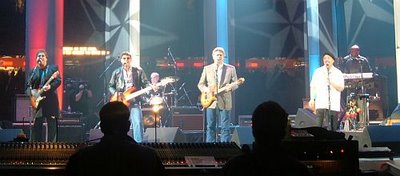I do. Lots of them. But this is the one of mine that has been waiting the longest. I'm a little concerned for this baby, because it's been waiting so long to be born.
There's a reason it hasn't come out of the oven yet. I've taken it for a drive here and there, but it always seemed to have more potential. It's the most original and the most tricky to decide which form to put it into.
It's a music arranging game. Originally it was designed to make it easy for large groups of musicians of differing skill levels to play together. But it could have many other uses, now that I've seen its potential.
I'm thinking of working on this project now, to take it further. How shall I decide which direction should I go with it?
It's one of those inventions that are so original that it's tricky to form into a product.
It has some interesting features. You know how jazz or rap or "Island style" evolved as a form of music? It could be used to invent a genre of music because one outline could be infinitely varied.
You know how tricky it is for musicians to discuss how to arrange parts? It could be tailored to be used as a shorthand for bands to talk about music arrangement.
You know how groups of people who play music get together to make some music? When they finally find a "groove," they have a hard time going anywhere else so their music ends up being a formless one-groove jam.This way of outlining could allow groups of people to play together and it would sound great!
It will take a bit of effort on your part to check this out. You probably wouldn't be interested if you weren't already a musician or theater person. But I'm hoping you might see possibilities enough to make a suggestion about which way I might take this little project. Maybe you'd like to get involved?
Oh, no worries - take your time...
I'm thinking for starters, perhaps making it into a kit of terms that could go into a presentation, accessible for use at an open mike situation. Then I could introduce the idea to local musicians.
Where is my troupe?



